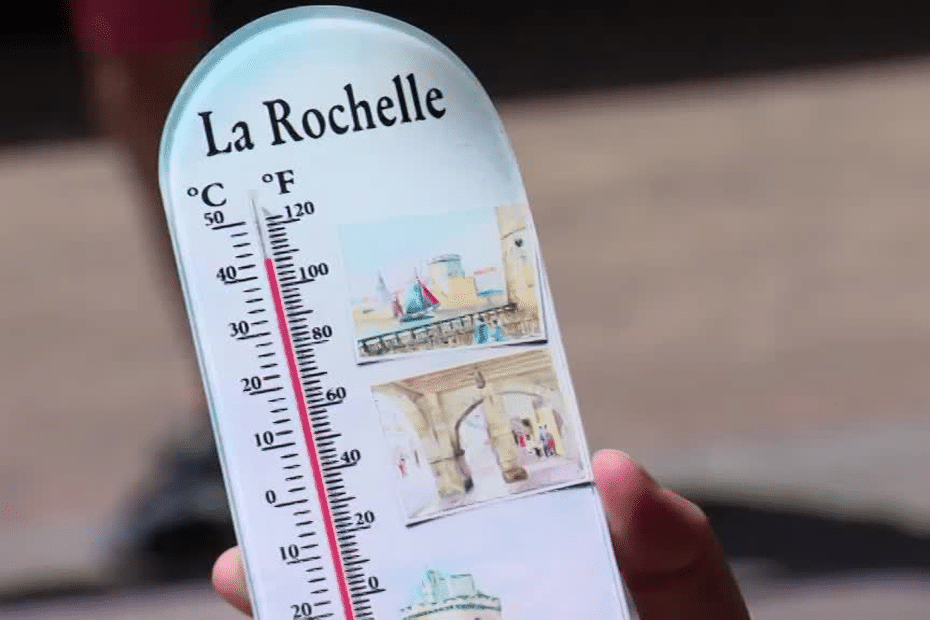In Poitou-Charentes, Deux-Sèvres, Charente and Charente-Maritime have since this morning been classified as orange heatwave vigilance by Météo France. These rising temperatures are accompanied by “extremely poor” air quality according to the ATMO index.
Temperatures exceed 30 degrees everywhere in France this Tuesday, August 9, 2022, according to Météo France. Since this morning, Charente, Charente-Maritime and Deux-Sèvres have been on heat wave orange vigilance according to Météo France. This year, the heat waves are less intense than those of June and July 2021, but they last longer.
–
On the departments placed in orange vigilance, the heat will increase tomorrow, with 35 to 38°C expected at the hottest of the day. In Poitou-Charentes, temperatures will reach 34 to 37 degrees. Temperatures should begin to drop in the west of the country next Sunday, as a rainy-stormy deterioration approaches.
According to the Atmo index, calculated by the Approved Air Quality Monitoring Associations (AASQA), the air quality is extremely poor today in Poitiers, Limoges, Niort, La Rochelle and Angoulême, and the will also be tomorrow. Over the past seven days, the state of the air has been “degraded” in these cities of Poitou-Charentes.
–
The main pollutant is ozone (03), which has nothing to do with the ozone of the protective layer in the upper atmosphere. Pollutant 03 is found at ground level. It is formed under the effect of photochemical reactions (in the presence of solar radiation) between various pollutants, such as nitrogen oxides (NOxemitted by vehicles and industry) and volatile organic compounds (VOC, emitted by vehicles, solvents and industry).
In the event of a pollution peak, as is the case, the short-term and long-term exposure has significant health impacts, particularly for vulnerable or sensitive people.
At too high concentrations, ozone can cause respiratory problems, trigger asthma attacks, decreased lung function and the onset of respiratory diseases. It is recommended to see a health professional in case of respiratory problems.
–
In the event of poor air quality, the Atmo France Federation advises favoring short and less intense journeys for cyclists. In town, in order to avoid exhaust fumes, it is best to stand in front of cars on red lights and keep your distance from motorized vehicles.
–
In 2015, the regional air quality monitoring observatory in Occitanie (formerly Oramip) demonstrated that choosing to take an axis with little road traffic makes it possible to reduce the average exposure of cyclists or pedestrians to around 40% for nitrogen dioxide (NO2) and 50% for PM10 particles.
In town, by choosing where you practice your sporting activity, the average annual concentrations of pollutants can be 20 to 40% lower than when you are close to the main roads, specifies the Atmo France Federation.
The Federation of Approved Air Quality Monitoring Associations also advises postponing the use of a solid fuel barbecue (wood, coal, etc.) in the event of poor air quality. Charcoal barbecues emit a mixture of substances that pollute the air and can cause health effects.
–





